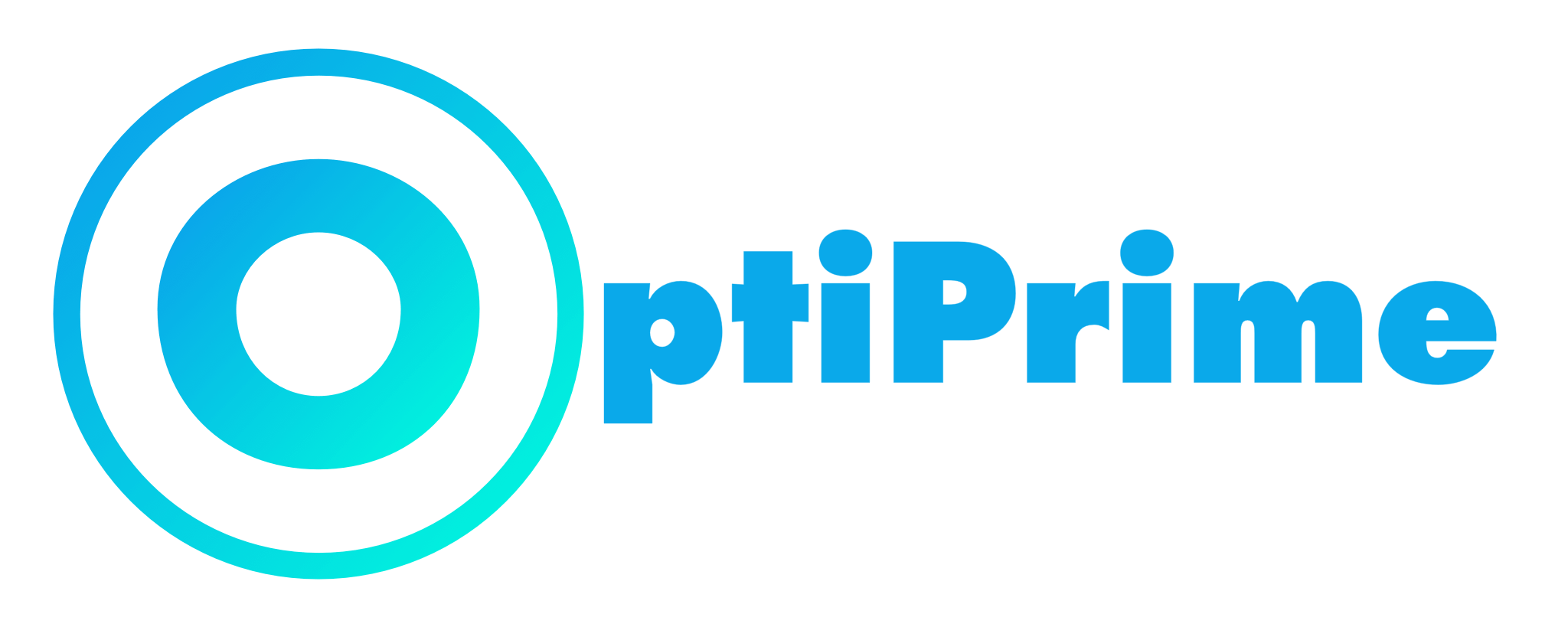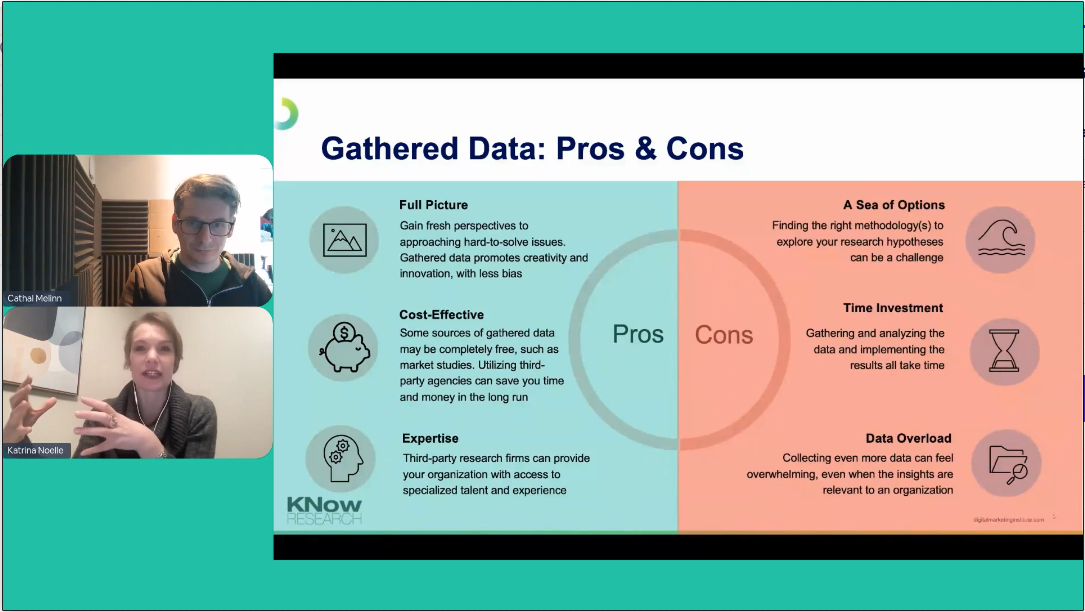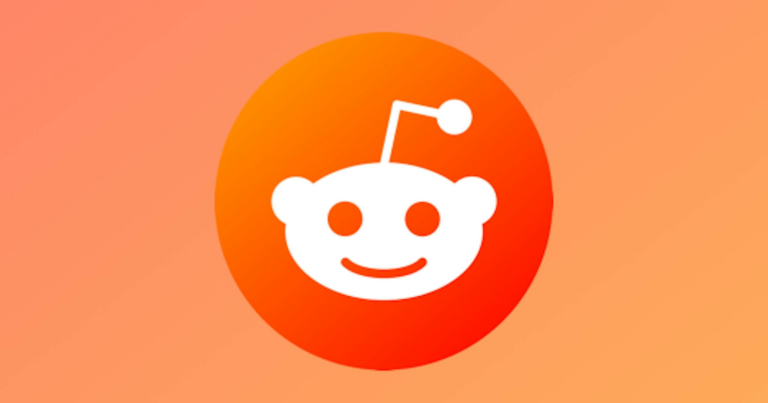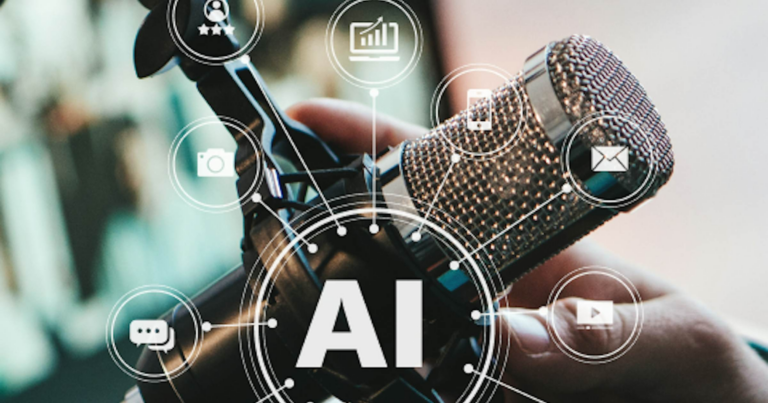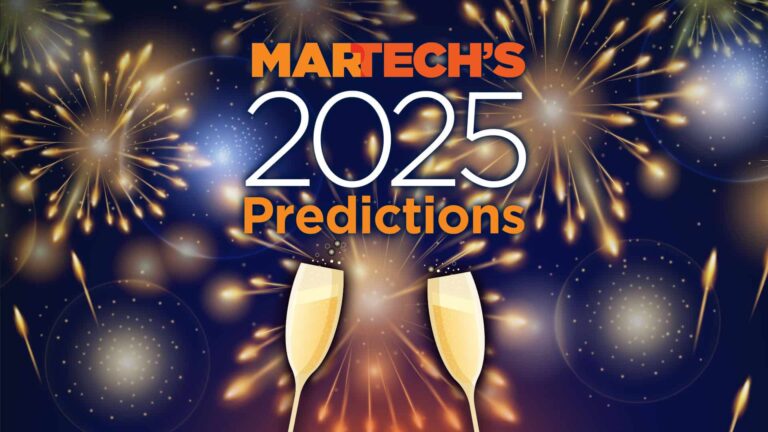Using Artificial Intelligence in Social Media Platforms
Marketers can harness artificial intelligence (AI) to enhance and personalize their social media strategies and initiatives. AI technology has been seamlessly integrated into major social media platforms, improving functionalities and enabling large-scale, tailored interactions.
A staggering 97% of business executives agree that AI significantly enhances social media analytics and insights, thus improving marketing strategies, as reported by The 2023 State of Social Media Report.
In this article, we’ll delve into the synergy between social media and AI, discussing topics such as:
- Understanding AI in Social Media
- Practical Ways AI Can Be Applied in Social Media
- Top AI Tools for Social Media Optimization
- Four Innovative Brands Utilizing AI in Social Media
Exploring the Benefits and Drawbacks of AI in Digital Marketing
Download Now!
What is AI in Social Media?
AI in the realm of social media marketing employs sophisticated technologies, such as machine learning and natural language processing, to scrutinize user data and behavior on social networks.
Marketers can utilize AI for a multitude of tasks including content creation, social media monitoring, increasing brand recognition, precise ad targeting, and influencer collaboration, thereby enabling strategic, data-informed decisions that sculpt social media strategies.
AI’s goal in digital marketing is to ensure users find their feeds populated with content and advertisements that are both relevant and engaging, thereby personalizing the user experience to an unprecedented level.
Examples of How to Use AI in Social Media
The application of AI within social media spans a wide array of marketing functions such as:
- Custom content curation
- Automated content production
- Elevated influencer engagement
- Enhanced customer support
- Streamlined advertising processes
Let’s dive deeper into each of these applications.
1. Content creation
AI technologies, including but not limited to ChatGPT, are revolutionizing the way content is created. While ChatGPT remains eminent, newcomers like Claude and Jasper are introducing unique features aimed specifically at marketers, such as enhanced predictive capabilities and advanced analytics tools.
For businesses, content creation, whether for social media campaigns or in-depth articles, often requires significant effort, especially in the absence of dedicated content specialists.
Utilizing prompts, marketers can generate content that aligns with specified parameters like keywords, audience demographics, channel preferences, tone of voice, and even brand identity, thus creating diverse content forms including social media posts, articles, scripts, videos, and visual imagery.
2. Influencer marketing
In an era where traditional advertising struggles to capture consumers’ attention, the right influencer can bridge the gap between a brand and its target audience.
Influencer marketing goes beyond mere popularity, focusing instead on finding voices that resonate trust and authenticity within niche circles.
AI aids in identifying key influencers who genuinely align with your brand’s values and target demographic, while also spotting potential fraudulent activities. These tools not only assess an influencer’s engagement rates and content alignment but also offer performance tracking and ROI analysis functionalities.
Luxury fashion house Balmain set a pioneering standard by incorporating virtual models into its influencer marketing campaigns, featuring digital personas like Shudu, Margot, and Zhi, with Shudu being celebrated as the world’s first digital supermodel.
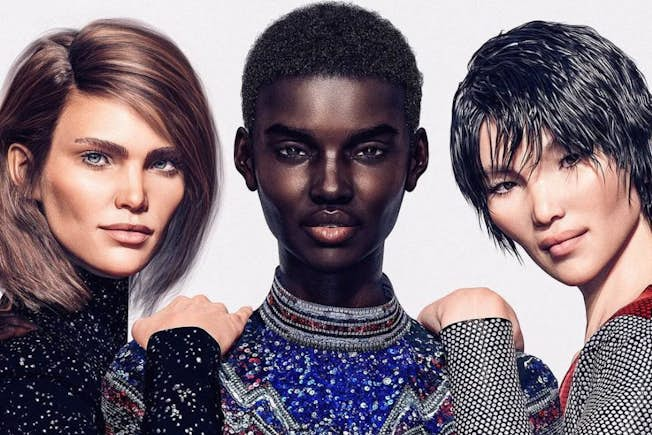
3. Personalization
By analyzing user data and preferences, AI enables marketers to offer highly personalized content that captivates their target audience.
An exemplary model of this is TikTok, whose algorithm has become so adept at content recommendation that it’s now akin to a search engine for many users.
AI-powered automation also allows for the optimization of posting schedules based on historical engagement data. Through analytical tools, marketers gain real-time insights into campaign performance, enabling more accurate content strategies.
Social listening driven by AI can identify trending topics and sentiment around specific keywords, offering a nuanced understanding of public perception towards a brand. Tools like Sprout Social’s sentiment analysis provide valuable feedback on consumer sentiment, assisting in targeted support and engagement.
4. Customer service
Social media serves as a critical customer service touchpoint, with consumers expecting swift responses to inquiries and issues.
AI-enriched chatbots and virtual assistants, such as those utilized by Meta across Facebook Messenger and WhatsApp, can understand and respond to user queries, offer personalized shopping experiences, and even execute transactions, streamlining the customer service journey.
Even Snapchat’s My AI chatbot aims to offer contextually relevant suggestions and support, albeit with a continuous learning curve to ensure appropriate and meaningful interactions.
An innovative example is Coca-Cola’s chatbot, which integrates with Instagram to direct users to local dining options, facilitating direct bookings through OpenTable.
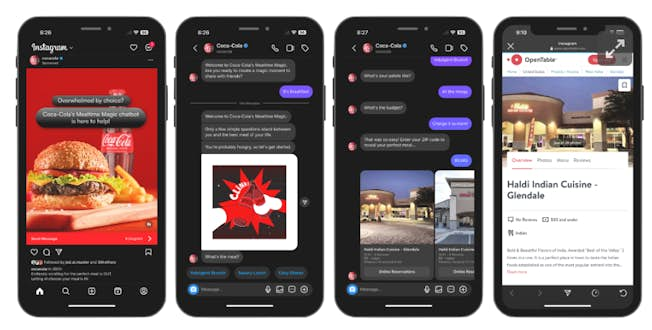
5. Advertising
In an ever-cluttered digital landscape, leveraging AI for advertising ensures that campaigns are more targeted, engaging, and effective, thus maximizing the return on investment.
AI tools can assist in a variety of advertising tasks, including audience segmentation, ad content creation, performance analysis, and predictive analytics, dramatically enhancing campaign outcomes.
Lingerie brand Cosabella’s decision to replace traditional agencies with an AI platform named ‘Albert’ for managing its digital marketing strategies serves as a testimony to AI’s effectiveness, resulting in significant growth in both reach and revenue.

“After transitioning our digital marketing to Albert (AI), I can’t imagine going back to manual management.”
Courtney Connell, Marketing Director at Cosabella
Top AI Social Media Tools
The landscape of social media boasts a vast array of platforms and content types, but managing them can be daunting without the right tools. AI tools for social media streamline management tasks, enhance strategic planning, and refine customer engagement techniques.
Additionally, AI can analyze massive volumes of data to uncover audience preferences and identify trends, empowering marketers with actionable insights.
According to a LinkedIn survey, here’s what our audience found most helpful.
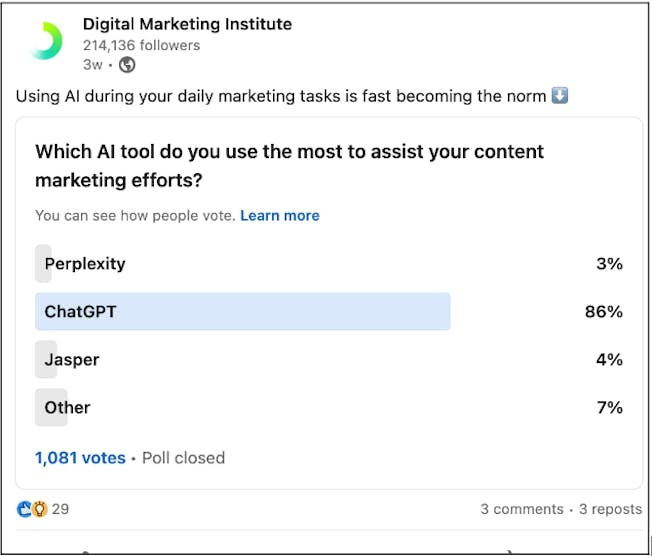
Highlighted below are some key AI tools transforming social media:
- ChatGPT for generating conversational content across diverse topics.
- Midjourney and DALL-E for creating stunning visuals from text prompts.
- Brandwatch for deep-dive social listening and analytics.
- Sprout Social for comprehensive social media management and engagement.
- AdEspresso for optimizing social advertising campaigns.
- Chatfuel for deploying engaging chatbots on messaging platforms.
- Upfluence for strategic influencer collaboration and insights.
- CapCut for professional-grade video editing.
- Grammarly for refining content with advanced writing assistance.
- Canva for AI-assisted design and multimedia creation.
- Whimsical Diagrams in ChatGPT for quick, effective social media planning.
- Ubersuggest Chrome Plugin for SEO insights directly in Google searches.
- Answer The Public to uncover common queries across major search engines.
- ManyChat for automating conversations on Instagram, Facebook, and WhatsApp based on keywords.
For competitive analysis, consider exploring tools like TikTok Creative Center with Creative Assistant and Meta Ads Library for a closer look at what rivals are doing.
Innovative Brand Examples in AI-driven Social Media
To illustrate the practical application of AI in social spaces, here are examples of brands achieving remarkable success:
1. Heinz A.I. Ketchup
Curious about how AI pictures ‘ketchup’, Heinz utilized the text-to-image capabilities of Dall-E 2, generating unique images that humorously resembled Heinz bottles, leading to an innovative advertising campaign rooted in AI creativity.
2. Ryan Reynolds & Mint Mobile
Ryan Reynolds cleverly leveraged ChatGPT to concoct a commercial script infused with his unique humor for Mint Mobile. By providing prompts based on humor, a curse word, and a competitive promotion angle, the AI generated a script that perfectly captured Reynolds’ comedic essence, offering a glimpse into AI’s potential in creative marketing.
